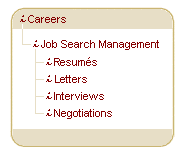 |
|
 Careers Careers
The case interview is a discussion, between the interviewer and the interviewee, on a real or hypothetical business or non-business scenario. Through this process, the interviewer intends to assess the interviewee's analytical and people skills in handling realistic situations. These interviews, while being most common in the consulting industry and in strategy consulting in particular, are not limited only to the consulting industry. You are liable to come across these interviews, from time to time, in other industries as well. The case interview approach provides the interviewer insights into your thinking process for problem solving. Problem solving is often independent of your expertise in any industry - expertise in an industry simply gives you additional knowledge, which can be acquired later, when needed. The interviewer is interested in: your expertise in general business, ability and creativity to analytically apply your learnings from formal education and work experience, and raw intelligence. Problem solving is a learnable skill, so the interviewer is assessing whether the "acceptable raw material" is there, on which the prospective firm should invest for further development, to capture lucrative rewards. More specifically, the interviewer is assessing whether you can: identify the problem, formulate the problem so that it can be solved, and then proceed in an analytical (or structured) fashion to solve the problem. The interviewer wants to see you develop a structured "framework" for solution, for a correctly identified and well-formulated problem. The interviewer is NOT looking for the answer - it is the path you take to get to the solution that is of interest. Even when you think you know the answer, do not jump to it. Remember, the interviewer is interested in your thinking process leading to the solution. So it is your responsibility to walk through the process systematically, and to provide insights into your thinking and rationale. Chances are that you don't know the answer. Chances are that the interviewer has given you rather limited information, not enough to even formulate the problem, let alone solve it or know the answer to it. You can freely ask questions, and the interviewer would help you. You are in fact expected to ask questions to make progress, but your questions must be relevant to making progress in the discussion, and revealing of your structured thinking. There is no magic formula for success on case interviews, but you can develop a structured approach for dealing with them. All consulting firms have their own style of approaching their consulting engagements. For example, a well-know strategy consulting firm for years has used the 3Cs formula: customer, competition, and costs. Interestingly, the sequence of 3Cs and details of analyzing them have evolved, but not the formula itself. In the reengineering days of the past, the cost used to be the first C, but now it is customer. Another well-known consulting firm always focuses on the shareholder value and related analyses. While knowing the firm's approach to its engagements is helpful, it is not necessary. You can develop your own structured approach to problem solving that would stand you in good stead, whether independent of or in conjunction with your knowledge of the firm's style. As you might know, the founders of iMahal have extensive consulting experience, including strategy consulting. They have been involved in numerous case interviews, both as interviewees and interviewers. Here is one structured approach to problem solving that we have found useful in management consulting, and particularly in case interviews. The labeling of steps is systematic, but the associated details do not fit neatly into individual steps. The start and finish of details for each step is somewhat arbitrary, based on personal preference. One can reasonably argue that the details at the end of one step should really fit into the details at the beginning of the next step, or vice-versa. Fair enough, but that discussion is academic. From a practical stand-point, the overall approach and structure are valuable. Step 1: Identify the problem.
Step 2. Analyze the problem.
Step 3. Formulate options.
Step 4. Develop selection criteria.
Step 5. Make recommendations.
It is highly unlikely that you would get past Step 3 in a case interview, let alone completing the entire process. But it all depends on the interviewer. The interviewer may guide you through some steps more quickly than others. No two case interviews are the same, even on the same case. Discussion evolves, based on your interaction with the interviewer. Regardless, having an overall framework for problem solving can only help. One last note. Just as there is a multitude of variations on cases, there is multitude of jargon in the consulting industry. For example, some prestigious strategy consulting firms take pride in emphasizing that they follow a hypothesis-driven approach. What they simply mean is that they do not conduct research and analysis, hoping to find something insightful, but they bring insights to formulating the hypotheses which are then accepted or rejected based on research and analysis. In simple English, it simply means that you figure out what you are looking for, before you start the search. Well, the problem-solving approach presented above is in fact hypothesis-driven, if labels do really matter.
|
 |
|
 |
|||||

